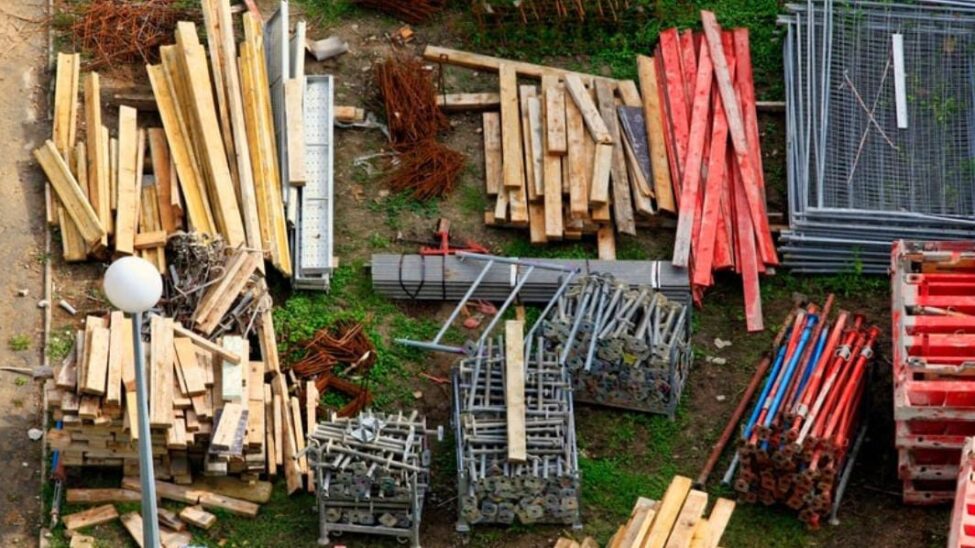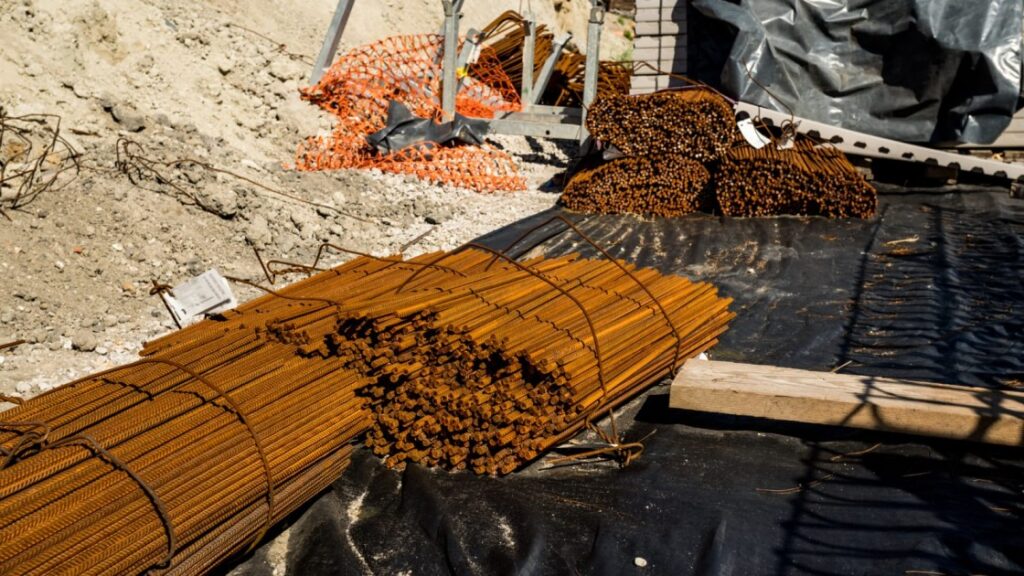
The Complete Guide to Building Construction Materials: What Every Project Needs
Some right building materials are required to build a house, bridge, or any structure on which any project is based. Here in this blog we will discuss the different building materials with their implications and a detailed list of building materials, explore their uses, and then look at how to find the best supplier for building construction material.
What are building construction materials?
Building material means substances and their products used in the creation of different forms of structures. Examples are buildings, roads, skyscrapers, and home constructions.
In fact, construction materials are the backbone of a project. The quality and type of materials used can make all the difference between a good output and a bad one.
List of Construction Materials
Here is a general list of construction materials with definitions that describes what each is:
- Concrete: A strong, long-lasting composition of cement, sand, gravel, and water used for foundations, walls, and floors.
- Steel: A strong, malleable material used for reinforcement of structures and building frames and in bridges due to their strength and flexibility.
- Wood: A natural material used in construction for framing, flooring, and roofing due to its flexibility and insulating characteristics.
- Bricks: Fired clay or concrete block used frequently to build walls and partitions, requires minimal strengthening and provides insulation.
- Glass: This material can be used as a material in transparent form in windows and front elevation for light passing and aesthetic purposes in buildings.
- Cement: The cement when mixed with water creates a solid usable and strength-gaining composition and is the main ingredient in preparing concrete and mortars.
- Sand: Aggregates or granular material used to make concrete, mortar, and as a base for various construction activities.
- Gravels: Small stones used in concrete mixes, road construction, and drainage systems.
- Aluminium: Light, corrosion-resistant metal used for windows and doors and sometimes for roofing.
- Plastic: Plastic is the synthetic material used in making pipes, insulation, and many other lightweight construction uses.
- Clay: A natural material used to make bricks and tiles because of its good malleability in usable strengths once fired.
Here, each of these materials played a critical role in modern civil construction materials used for various types of projects.
Different Kinds of Construction Materials
Construction materials can be categorized based on their properties and applications. The construction material categories are as follows:
1. Natural Materials
Materials taken directly from the natural environment with little or no processing. These are, therefore, environmentally friendly.
- Wood: Well suited for the residential building site, wood is both strong and flexible
- Stone: Well used for foundations and walls, stone is very sturdy but heavy.
- Clay: Clay is a natural material that can easily be molded and is used in the manufacture of bricks and tiles.
2. Manufactured Materials
These materials are prepared or manufactured before their use in construction works.
- Concrete: This is a typical construction material used in foundations, walls, and floors mixed from cement, sand, and water.
- Bricks: These are baked clay units used in building walls.
- Steel: Strong steel is used as beams, columns, and other construction parts.
3. Synthetic Materials
These are materials that a human being would have created for specific benefits, such as insulation or strength.
- Plastic: Used widely for piping and insulation and windows.
- Glass: For windows, façades and partitions.

What Materials Are Used for Construction?
Some projects demand more materials than others. Depending on the structure that one may need, here’s a breakdown of what materials used in construction:
Construction Materials for Residential Buildings
For houses and small buildings, civil construction materials that are commonly used include:
- Concrete: This is majorly used in the establishment of the foundation, walls, and floors.
- Wood: This is mainly used in the setting up of the frame, roof, and floors.
- Bricks: This is majorly used in setting up of walls and other outer structures.
Construction Materials for Commerical Buildings
Larger, multi-story buildings require stronger materials:
- Steel: Holds structural integrity and supports heavy weights.
- Glass: Employed in the building envelope for aesthetic and illumination purposes through facades.
- Aluminium: widely used for door and window applications in the form of sheets, widely available, lightweight yet strength-intensive material.
Construction Materials for Roads and Bridges
The infrastructure project requirements have the following construction materials:
- Asphalt: This is used for paving roads.
- Steel: It is one of the backbone structures of any bridge.
- Gravel: for roadbeds and as base material
Common Materials Used in Civil Construction Projects
Dams, tunnels, and highways require very strong materials, and in civil construction projects such as dams, tunnels, and highways, such materials are used.
- Concrete: Concrete is usually used for the construction of roads, bridges, and dams.
- Steel: The reinforcement of concrete and structures of large sizes requires this particular material.
- Cement: Cement, on the other hand, is one of the most significant substances used in building and is essentially employed as a binding agent in concrete.
You should always select a reliable building construction materials supplier like Infra Ratepersqft as it is the one-stop destination to get superior quality construction and building materials for your next project at competitive rates. Be it a house, commercial space, or any infrastructure project, Infra Ratepersqft carries an exhaustive range of civil construction materials to suit your every requirement.
Conclusion
Construction materials are the back bone of any building project. They come in various forms ranging from simple natural products, like wood and stone, to complex processed materials, such as steel and concrete.
Knowing the different types of construction materials and their uses is very important for any successful construction project.
Getting the right construction material guarantees durability, safety, and efficiency in any project. Therefore, it is always advisable to seek a reliable building construction material supplier who will provide you with quality materials and ensure the durability of your structure.
The difference between a residential home and a towering skyscraper depends on a variety of factors, most importantly the choice of the appropriate construction materials for use.
Frequently Asked Questions
1. Which are the most popular building materials?
The commonly used building materials include concrete, steel, wood, bricks, glass, and cement. These allow for strength and durability but are versatile to achieve the diversity of building projects.
2. How should one go about selecting good suppliers for building construction materials?
Through Infra Ratepersqft, you can hence come up with a good set of reliable suppliers by having a comparison option and getting connected to the best suppliers in terms of trusted and quality construction products.
3. What are the types of construction materials?
Construction materials can be divided into three categories: natural materials or materials harvested from the earth, such as wood and stone; processed materials or materials engineered by man, like steel and concrete; and synthetic materials or materials man-made, including plastic and glass. Each is used for a specific purpose in the project.
- building construction materials
- building construction materials supplier
- civil construction materials
- construction and building materials
- construction material categories
- construction materials
- construction materials list
- construction materials name
- construction products
- different types of construction materials
- materials used in construction
- what are the materials used for construction



